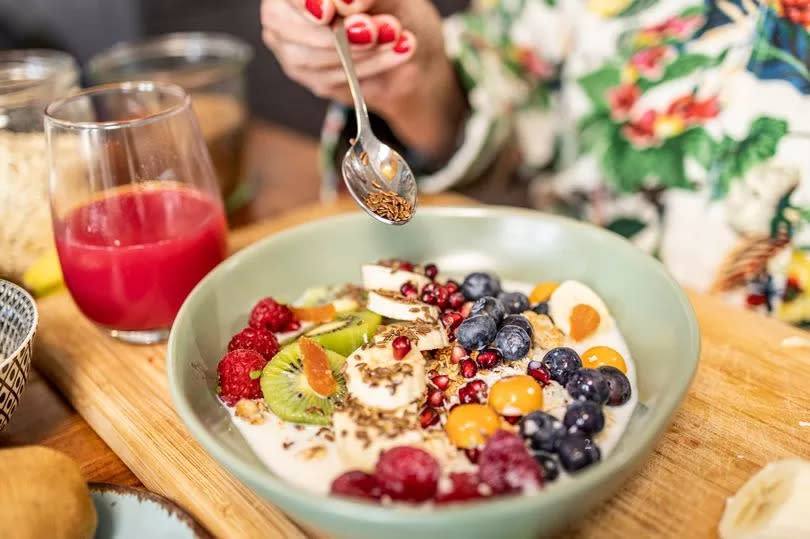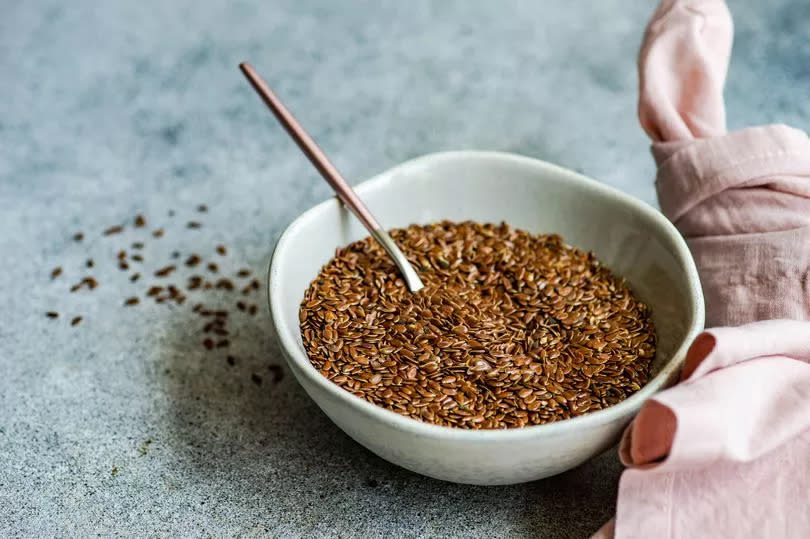Michael Mosley urges people to eat 'nutritional powerhouse' for better skin and health

Michael Mosley is urging people to consume flaxseeds to not only make you feel good - but look good too.
In his Just One Thing podcast series, the health guru said that the seeds - also known as linseeds - can not only protect your heart and reduce your blood sugar levels, but it can even keep your skin feeling smooth and hydrated.
The doctor called the seeds a "nutritional powerhouse" that are packed with fibre, protein and heathy fatty acids. So what are their benefits and how can you add them to your diet?
What can I add flaxseeds to?
The nutty taste make them perfect for adding to your porridge or breakfast cereal as well as on salads and yoghurts. If you're a keen baker, you can even add them to muffins or bread.
What are the benefits of flaxseeds?

Discussing their benefits, especially to our skin, Mosley says that this is down to its fatty acids and anti-oxidants that are "much more readily available when you grind the hull."
In fact, our largest organ is the skin with the author of the Fast 800 diet saying: "A small German study on women with sensitive skin found that 12 weeks of consuming a two gram flaxseed oil supplement improved their skin quality. Not only did their sensitivity decrease, but they experienced both a boost in hydration and smoothness."
Why? he asks. He explains that it could be down to the fatty acid called alpha-linolenic acid (ALA) which is found in high quantities in flaxseeds. They are also rich in fibre which means they are also good for relieving constipation and controlling our blood sugar levels.
What are the three components of flaxseeds?
Speaking to Dr Grant Pierce from the University of Manitoba in Canada, the professor said there are three components of flaxseed which are good for us. This includes ALA which is an anti-inflammatory with him stressing that inflammation is a key in diseases.
The second component is fibre which which reduces cholesterol whilst the third is lignans. This is found in a wide variety of plant-based foods, including seeds, whole grains, legumes, fruit, and vegetables with it being a key form of anti-oxidant.
He says that flax is unique as it has all three of these components. He also adds that the seeds are said to have a number of beneficial effects on heart health with it stopping blockages in the arteries, stopping irregular heartbeats, lowers blood pressure and helps those who are recovering from heart attacks.
Join the Daily Record's WhatsApp community here and get the latest news sent straight to your messages.
Should I use whole or ground flaxseeds?
Dr Pierce says: "When you use whole flaxseeds and you don't grind or mill it, it just goes right through your GI tract", also known as your Gastrointestinal tract.
He continues: "It has good affects there because of the fibre but it doesn't provide you with the ALA."
How much flaxseeds should I consume each day?
The doctor says that you can try 20g per day which works well in showing benefits. He stresses that people with normal blood pressure can still take the seeds and it won't affect them by lowering it even further meaning it's "perfectly safe."
How should I store flaxseeds?
If you have them whole you can put them in a bag the doctor says adding that they can stay like that for years. But if they are ground, it will start to oxidise. You can tell this has happened as it has a "fishy smell" but it will stay good in your fridge for one to two months.
Don't miss the latest news from around Scotland and beyond. Sign up to our daily newsletter.

 Yahoo News
Yahoo News 
